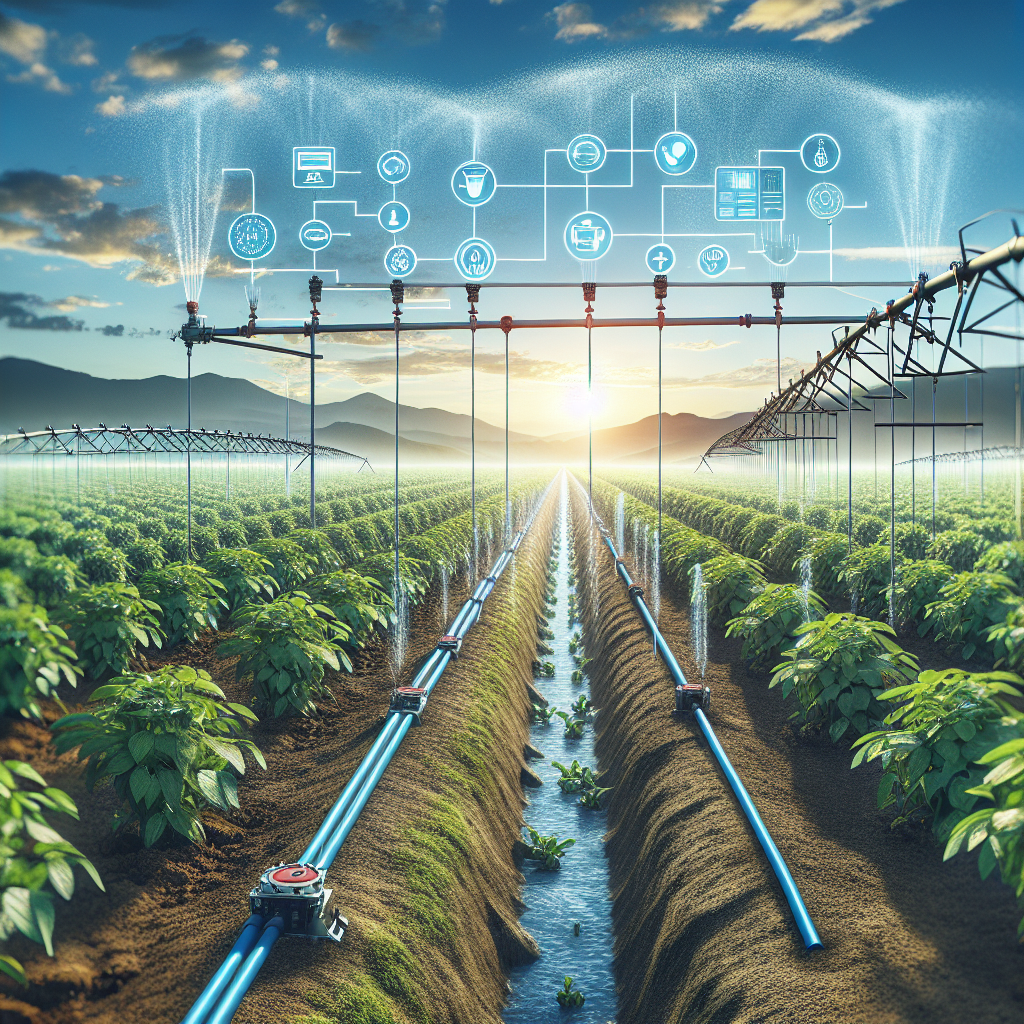Irrigation has been a crucial practice in agriculture for centuries, allowing farmers to efficiently water their crops and ensure optimal growth. In recent years, there has been a shift towards using adapted irrigation systems, which offer a range of benefits over traditional methods. These systems use advanced technology to provide precise and efficient watering, leading to improved crop yields and reduced water usage. In this article, we will explore the advantages of using adapted irrigation systems in agriculture.
One of the primary benefits of using adapted irrigation systems is increased efficiency. Traditional irrigation methods such as flood irrigation can result in water wastage due to uneven distribution and runoff. Adapted systems, on the other hand, use technologies such as drip or sprinkler irrigation to deliver water directly to the roots of plants. This reduces evaporation and runoff, ensuring that water is utilized more effectively. As a result, farmers can achieve higher crop yields with less water, making their operations more sustainable.
Another advantage of adapted irrigation systems is improved crop quality. By delivering water directly to the roots of plants, these systems help maintain consistent soil moisture levels, which is crucial for optimal plant growth. This can result in healthier plants with stronger root systems, leading to better resistance to pests and diseases. Additionally, by providing precise control over water application rates and timing, adapted systems can help farmers optimize crop development and achieve higher quality produce.
In addition to efficiency and crop quality benefits, adapted irrigation systems also offer environmental advantages. By reducing water wastage and runoff, these systems help conserve valuable resources and minimize the impact on local ecosystems. This is especially important in regions facing water scarcity or drought conditions, where every drop counts. Furthermore, by using technologies such as soil moisture sensors and weather data integration, adapted systems allow farmers to make informed decisions about watering schedules and amounts. This helps prevent overwatering and nutrient leaching into groundwater sources.
Adapted irrigation systems are also beneficial for labor savings and cost reduction. Traditional methods such as flood irrigation require manual labor for setting up and monitoring the process, which can be time-consuming and labor-intensive. In contrast, adapted systems automate much of the watering process through timers or sensors, freeing up farmers’ time for other tasks. Additionally, by reducing water usage and improving crop yields, these systems can lead to lower operational costs in the long run.
Furthermore, adapted irrigation systems offer flexibility for different types of crops and growing conditions. Drip irrigation is ideal for row crops or orchards where precise application rates are needed, while sprinkler irrigation works well for larger fields with uniform plant spacing. Farmers can also combine different types of adapted systems based on their specific needs and goals.
Overall, the benefits of using adapted irrigation systems in agriculture are clear: increased efficiency, improved crop quality, environmental sustainability, labor savings, cost reduction,
and flexibility for different growing conditions. By adopting these advanced technologies,
farmers can improve their operations’ productivity while conserving resources
and preserving the environment for future generations.
In conclusion
Adapted irrigation technology has revolutionized modern agriculture by offering numerous benefits over traditional methods.
From increased efficiency to improved crop quality,
these advanced systems have transformed how farmers manage their watering needs.
By investing in adapted
irrigation technology,
farmers can optimize their operations,
reduce costs,
conserve resources
and ultimately enhance food production sustainability
for a growing global population.
It is clear that adapt
irrigation system have become an essential tool
for modern agriculture
and will continue to play a crucial role
in feeding the world’s population
while protecting our planet’s natural resources













